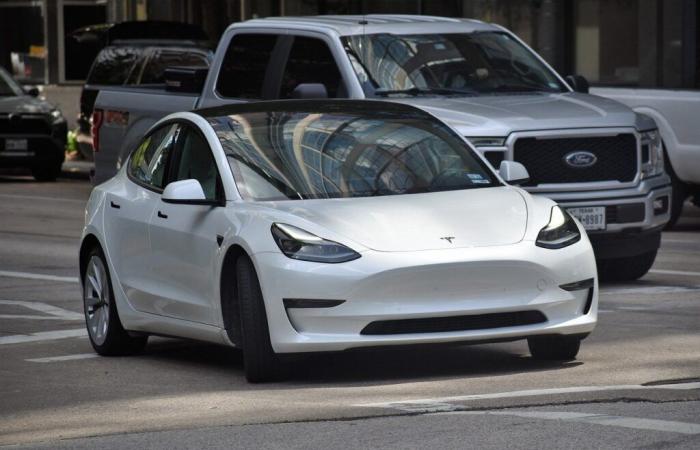While companies buy almost half of new vehicles in France, their contribution to greening the vehicle fleet remains insufficient. The Minister for Energy, Olga Givernet, expresses her desire to introduce more restrictive measures to encourage the adoption of electric vehicles, a crucial issue for the second-hand market.
Despite quotas, unmet objectives of corporate fleets
During the Paris Motor Show, Olga Givernet expressed her disappointment at the lack of commitment from companies to the electrification of their fleets. « They are not up to the task of greening their fleet “, she lamented, emphasizing that 60% of the companies concerned have not respected the obligation to acquire at least 20% low-emission vehicles in 2023.
Yet this regulation, in place for companies with more than 100 vehicles, currently has no penalties for non-compliance. Result: only 11% of new company cars were electric in the first half of 2024 in France, compared to 35% in Belgium and Denmark, where tax incentives are applied.
The Minister for Energy is now considering strengthening these obligations to stimulate the purchase of electric vehicles. “ I am ready to go very hard on the obligation that these companies have “, she announced. She also underlined the importance of this transition for the second-hand market, because vehicles purchased today will be resold within a few years, becoming accessible to a wider audience.
Despite the government's exhortations, several companies are struggling to keep up. Carrefour, for example, has electrified only 4% of its fleet in 2023, but assures that it is engaged in a process of “ constant greening “. Iliad, for his part, recognized a “ certain retard » but calls into question the current limits of the autonomy of electric vehicles. The group nevertheless plans to reach 25% electric vehicles in its fleet by 2025.
Insufficient efforts of companies
The short-term rental sector, for its part, has expressed its concern about a rapid shift to electric. A sudden transition would endanger the cash flow of these companies, according to them. Tax uncertainty also constitutes a major obstacle for large companies, as pointed out by Laurent Petit, marketing director of Alphabet France, a BMW subsidiary specializing in long-term rental. “ Committing to a vehicle today means having it for 12 to 60 months, while taxation changes from year to year. “, he explained.
If some companies are good students, like La Poste, 52% of whose fleet is now electric, the overall effort remains insufficient. To encourage the transition, internal initiatives are starting to emerge. Carrefour, for example, introduced bonuses to encourage its employees to choose electric vehicles.
T&E (Transport & Environment), a think tank, however, believes that the model of company cars, which represent almost half of company fleets, does not provide sufficient incentive to abandon thermal vehicles. This system, according to them, would be undervalued in the calculation of social contributions, leading to an annual shortfall of nearly 4 billion euros for the State and Social Security.






